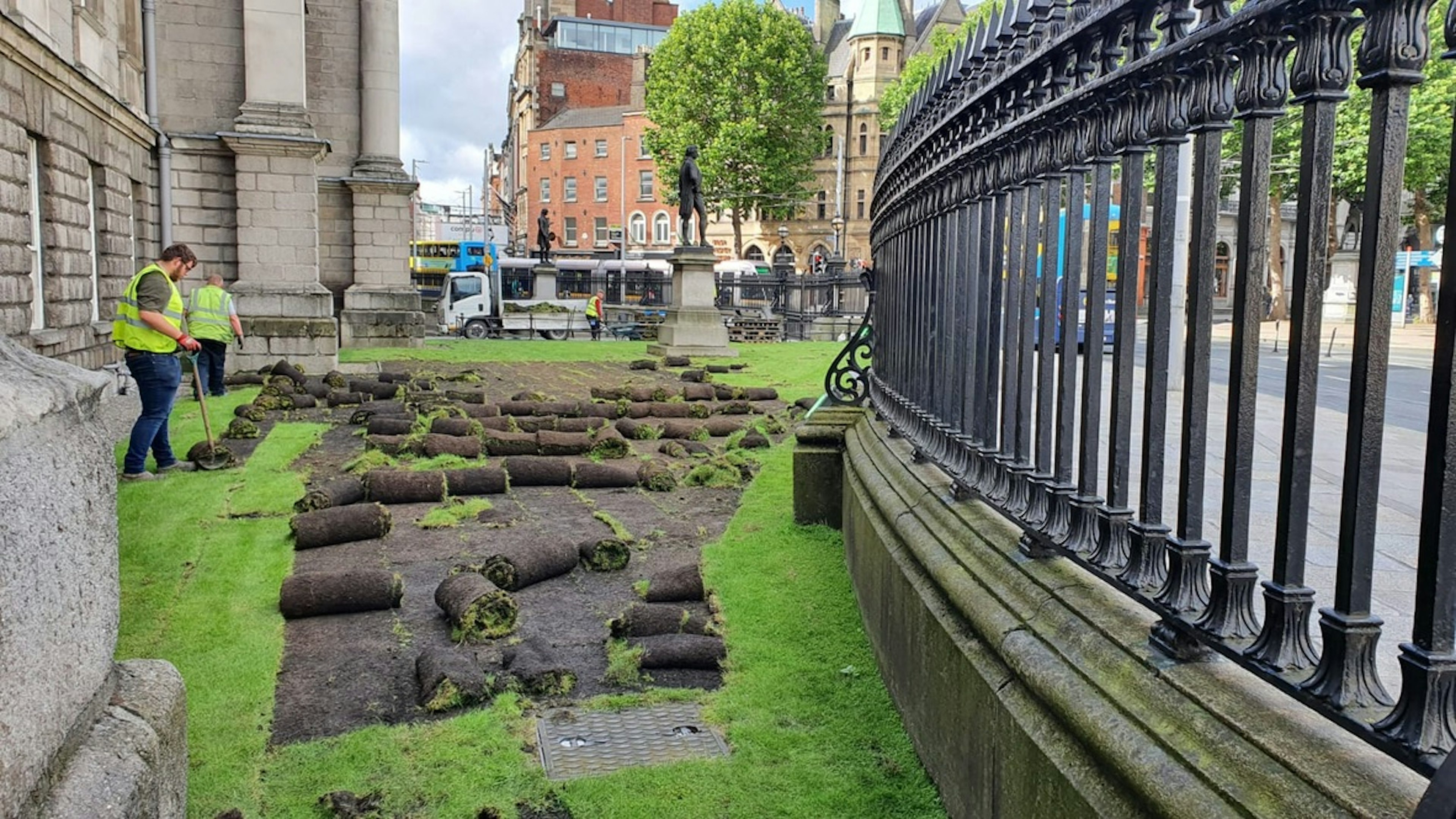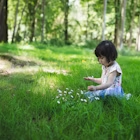
Dublin's Trinity College is turning its green spaces into wildflower meadows
Aug 4, 2020 • 2 min read

Wildflower meadows will replace the manicured lawns at the front of its entrance building © David Soanes Photography via Getty Images
An iconic Irish university in the heart of Dublin has begun planting wildflower meadows to replace the manicured lawns at the front of its entrance building. This is part of its response to Ireland’s biodiversity crisis and commitment to the All-Ireland Pollinator Plan.

Trinity College is Ireland’s most prestigious university dating back to 1592, and is a masterpiece of architecture and landscaping. It is a huge visitor attraction as it is home to the famous Book of Kells and its walking tours are always popular. The decision to plant the wildflower meadows around the campus was taken after thousands of students, staff and members of the public voted for the more nature-friendly alternative. One of the reasons for planting the meadows is that lawn-mowing and ground preparation can disturb insects that feed and nest in the soil.

Wildflowers support biodiversity and provide a habitat for native insects and food for pollinators in the city centre, and Trinity converted substantial areas of the campus to wildflower havens last year, providing more space for insects to rest, live and feed. The new wildflower meadows will further increase the range of plant species available for pollinators, while representing a pioneering attempt in Ireland to place wildflower spaces in a formal setting. The wildflowers being planted will include a mix of annuals and perennials, possibly supplemented with some bulbs and rhizomatous plants.

The main aim will be for flowering to extend over as long a period as is possible. The meadows will flower from spring to autumn, and will be left untouched over the winter months when pollinating insects, such as butterflies, hoverflies and bees, are not active. “The new wildflower areas will bloom in one of the most prominent areas in Dublin, which is passed by thousands of people every day," says Professor John Parnell, chair of Trinity’s grounds and gardens committee. "The green space outside our iconic Front Gate may look a little less tidy than it once did, but will be more colourful and serve as a constant reminder of what nature looks like while underlining the increasingly important role we all have in protecting our environment."
Lockdowns are easing globally as the planet adjusts to a new normal. Find out how COVID-19 is changing travel.
You might also like:
Enjoy these gorgeous wildflower blooms from around the world online
Houseplants that will remind you of gardens around the world
Explore related stories









